Mathematical reasoning Normal Addition & Subtraction Worksheets for Ages 4-6
9 filtered results
-
From - To
Unlock your child’s potential with our engaging Mathematical Reasoning Normal Addition and Subtraction Worksheets, designed specifically for ages 4-6. These thoughtfully crafted activities help young learners build a strong foundation in basic math skills through fun and interactive tasks. Each worksheet focuses on enhancing their understanding of addition and subtraction concepts, fostering critical thinking, and developing problem-solving abilities. Ideal for preschool and kindergarten, our worksheets encourage early learners to confidently explore numbers and increase their mathematical reasoning. Unleash the joy of learning with colorful, easy-to-follow exercises that motivate your child to practice math while enhancing their cognitive skills!


Tricky Problems Worksheet: Part 1


7 Continents and 7 Seas Worksheet
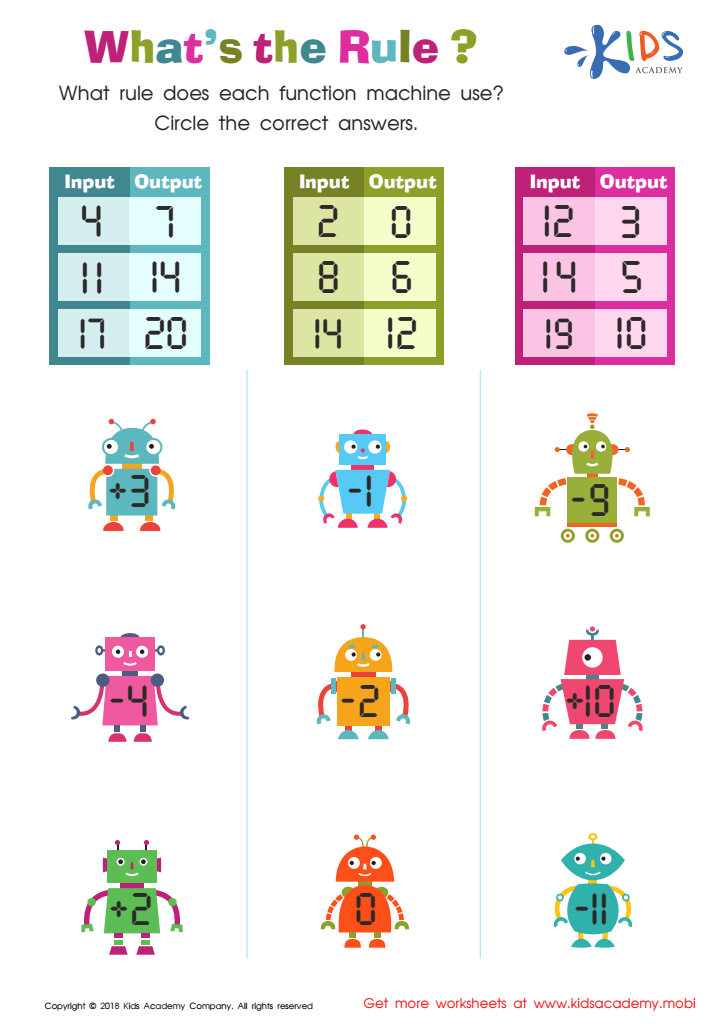

What's the Rule Worksheet
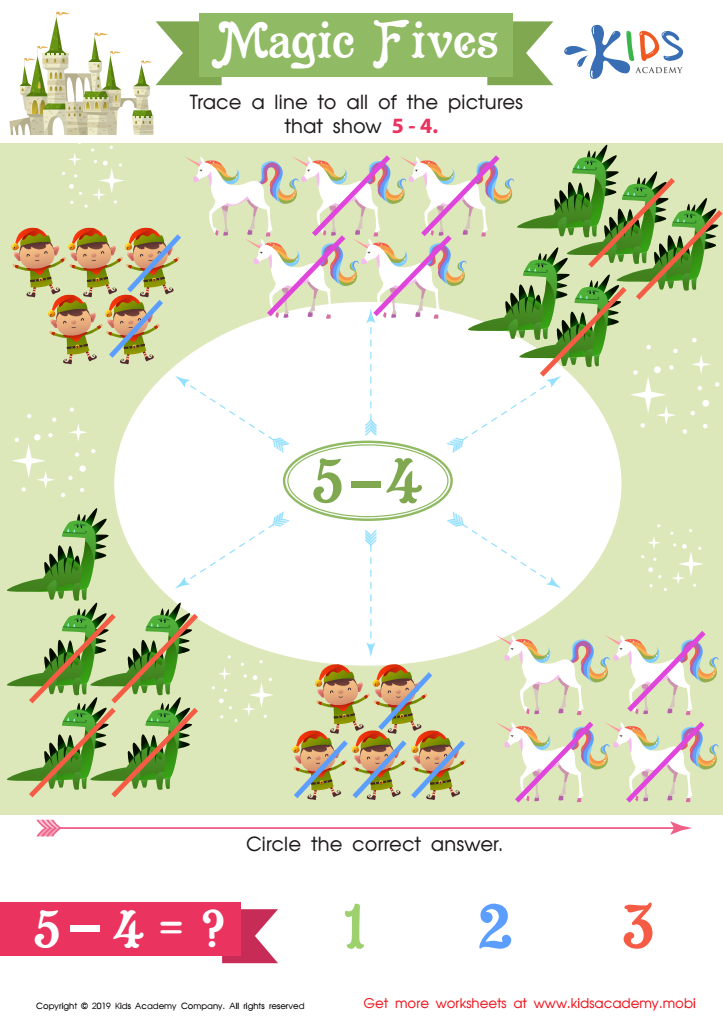

Magic Fives Worksheet
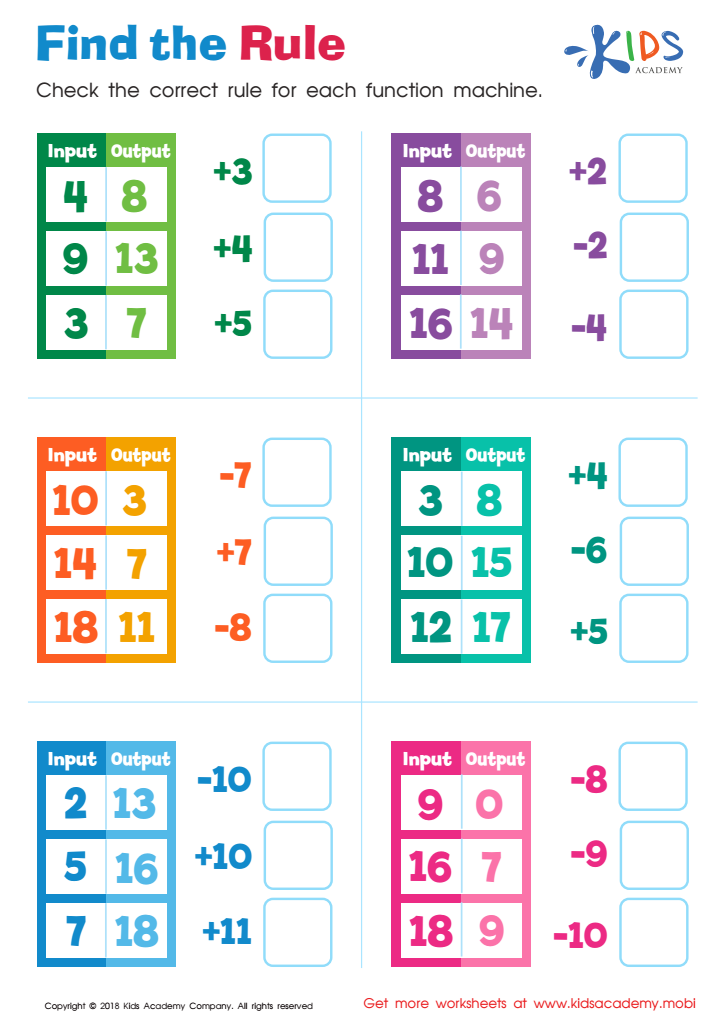

Find the Rule Worksheet
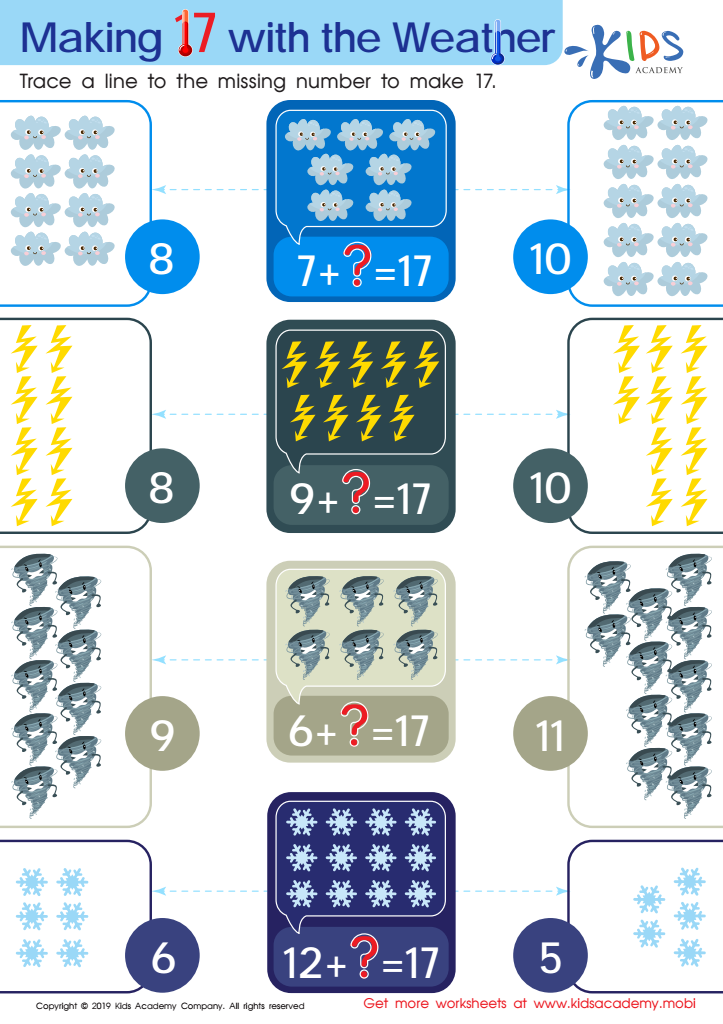

Making 17 with the Weather Worksheet
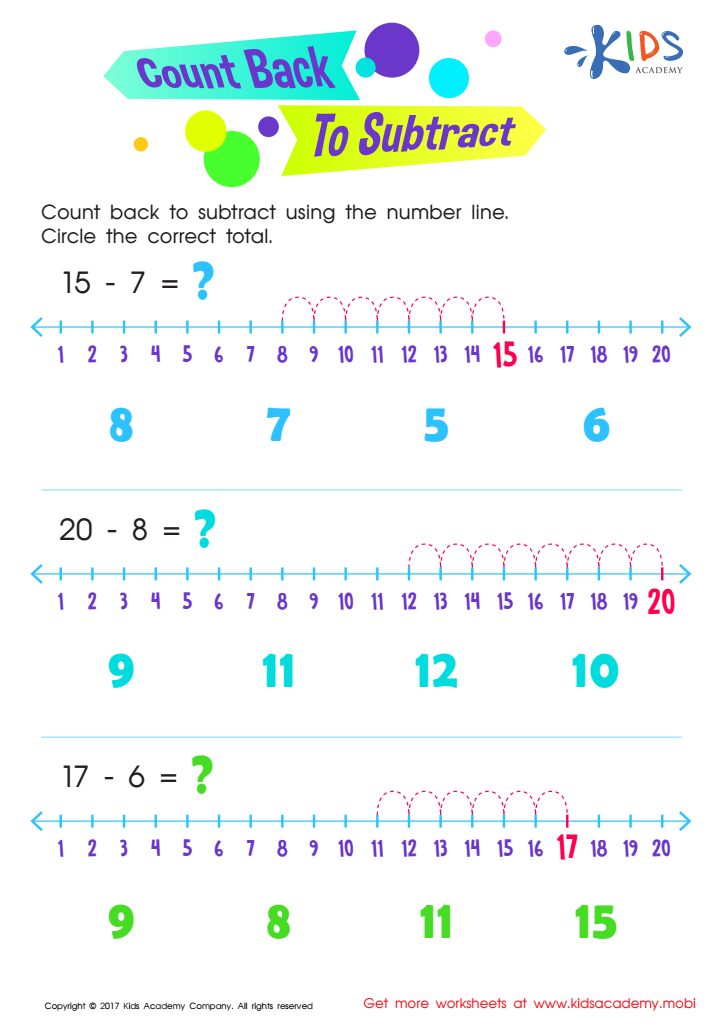

Count Back to Subtract Substraction Worksheet
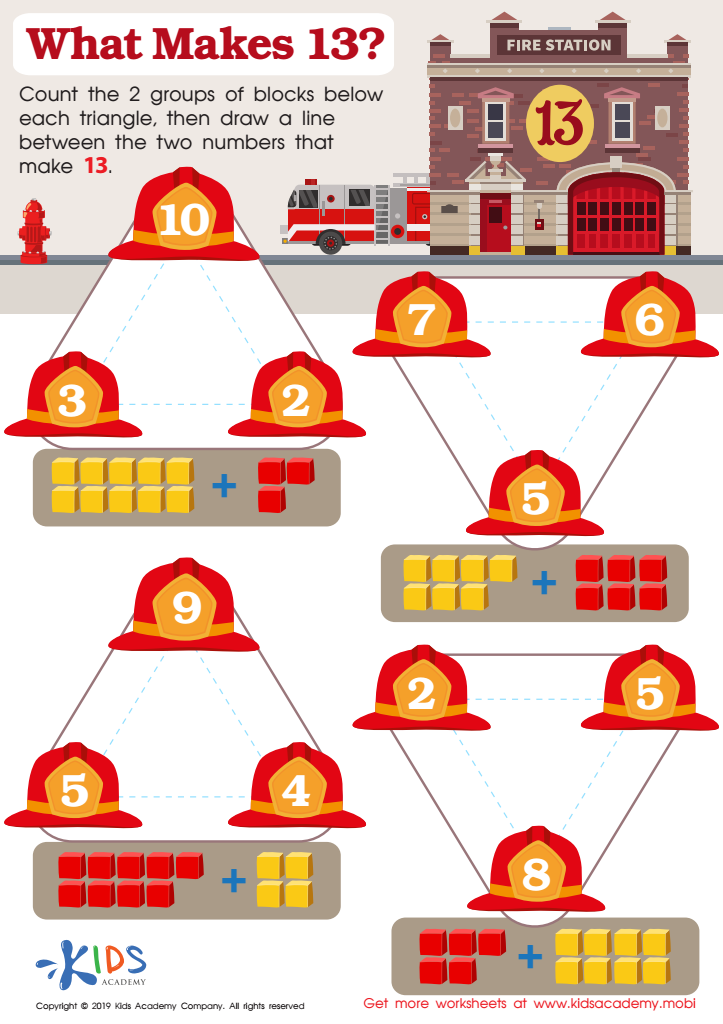

What Makes 13 Worksheet
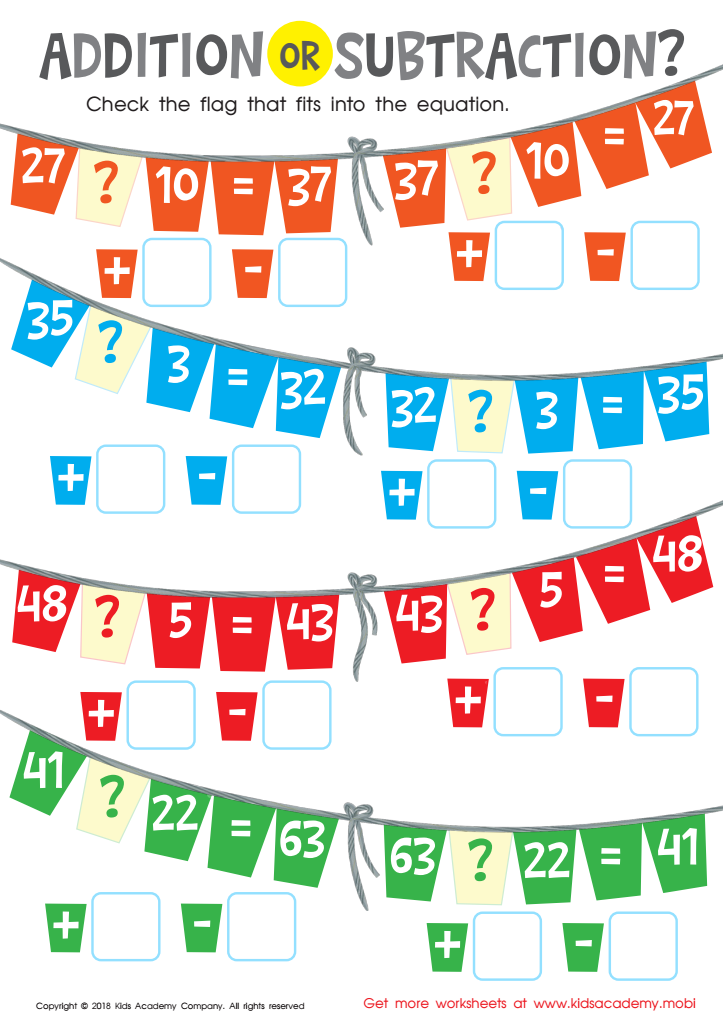

Addition or Subtraction? Worksheet
Mathematical reasoning, particularly in normal addition and subtraction, is a foundational skill for children aged 4-6. Understanding these concepts early lays the groundwork for advanced mathematical thinking and critical problem-solving skills later in life. At this age, children develop cognitive abilities that allow them to grasp not just the operations of addition and subtraction but also the relationships between numbers.
When teachers and parents emphasize these skills, they help foster a child's ability to think logically and make connections. For instance, recognizing that addition is about combining quantities, while subtraction involves taking away, nurtures children's understanding of their world, enhancing their reasoning in different contexts, such as counting objects, sharing, or measuring.
Moreover, early exposure to mathematical reasoning promotes confidence and a positive attitude towards math, reducing anxiety about the subject as children grow. Engaging in activities that involve normal addition and subtraction in playful and interactive ways helps solidify these concepts. Parents and teachers can model problem-solving behaviors and encourage exploration, making math a part of everyday life. This investment not only yields immediate academic benefits but also sets children up for success in future learning endeavors.

 Assign to My Students
Assign to My Students
















